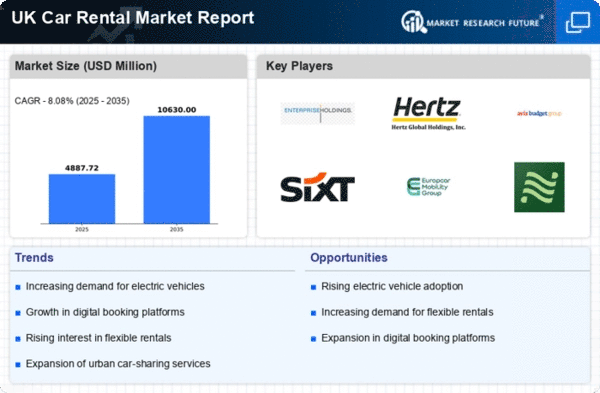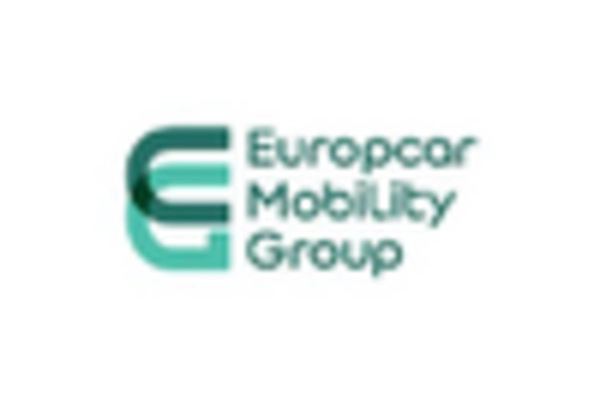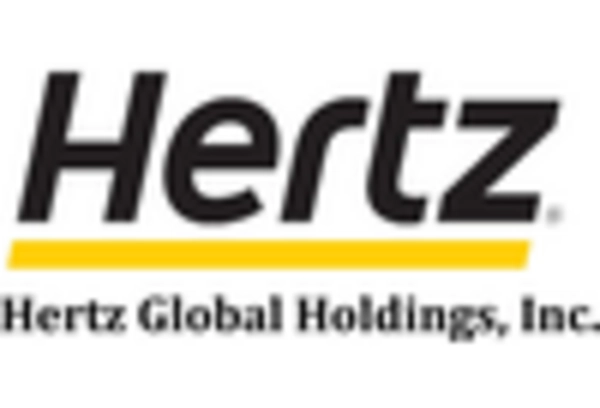Tourism Recovery
The car rental market in the UK is poised to benefit from the resurgence of tourism. With international travel restrictions easing, the influx of tourists is expected to rise significantly. In 2025, the UK tourism sector is projected to contribute around £200 billion to the economy, with a substantial portion allocated to transportation services. Tourists often seek convenient and flexible travel options, making car rentals an attractive choice. This trend suggests that rental companies may need to adapt their services to cater to the diverse needs of tourists, including offering local insights and tailored packages, thereby driving growth in the car rental market.
Increased Urbanisation
The ongoing trend of urbanisation in the UK appears to be a significant driver for the car rental market. As more individuals migrate to urban areas, the demand for flexible transportation options rises. Urban dwellers often prefer renting vehicles for short-term needs rather than owning a car, which can be costly and impractical in densely populated areas. According to recent data, urban populations in the UK are projected to increase by approximately 2.5% annually, leading to a heightened reliance on car rental services. This shift is likely to encourage rental companies to expand their fleets and diversify their offerings, thereby enhancing competition within the car rental market.
Environmental Awareness
Growing environmental consciousness among consumers is influencing the car rental market in the UK. As individuals become more aware of their carbon footprints, there is an increasing demand for eco-friendly transportation options. This trend is prompting rental companies to expand their fleets to include hybrid and electric vehicles. Recent surveys indicate that around 45% of consumers are willing to pay a premium for sustainable rental options. Consequently, the car rental market may see a shift towards greener practices, with companies adopting more sustainable business models to attract environmentally conscious customers.
Flexible Work Arrangements
the rise of flexible work arrangements is impacting the car rental market in the UK. As remote and hybrid work models become more prevalent, individuals are seeking transportation solutions that accommodate their changing needs. Many employees prefer renting vehicles for business trips or occasional commuting rather than maintaining a personal vehicle. This trend is likely to drive demand for short-term rentals and corporate rental agreements. Data suggests that the corporate travel segment is expected to grow by approximately 15% in the coming years, indicating a potential opportunity for rental companies to tailor their services to meet the needs of businesses and their employees.
Technological Advancements
Technological innovations are transforming the car rental market in the UK. The integration of advanced technologies such as mobile applications, GPS tracking, and contactless payment systems is enhancing customer experience and operational efficiency. Data indicates that approximately 60% of consumers prefer using mobile apps for booking rentals, reflecting a shift towards digital solutions. Furthermore, the adoption of telematics and data analytics allows rental companies to optimise fleet management and improve service delivery. As technology continues to evolve, it is likely to play a crucial role in shaping the future of the car rental market, making it more accessible and user-friendly.
















